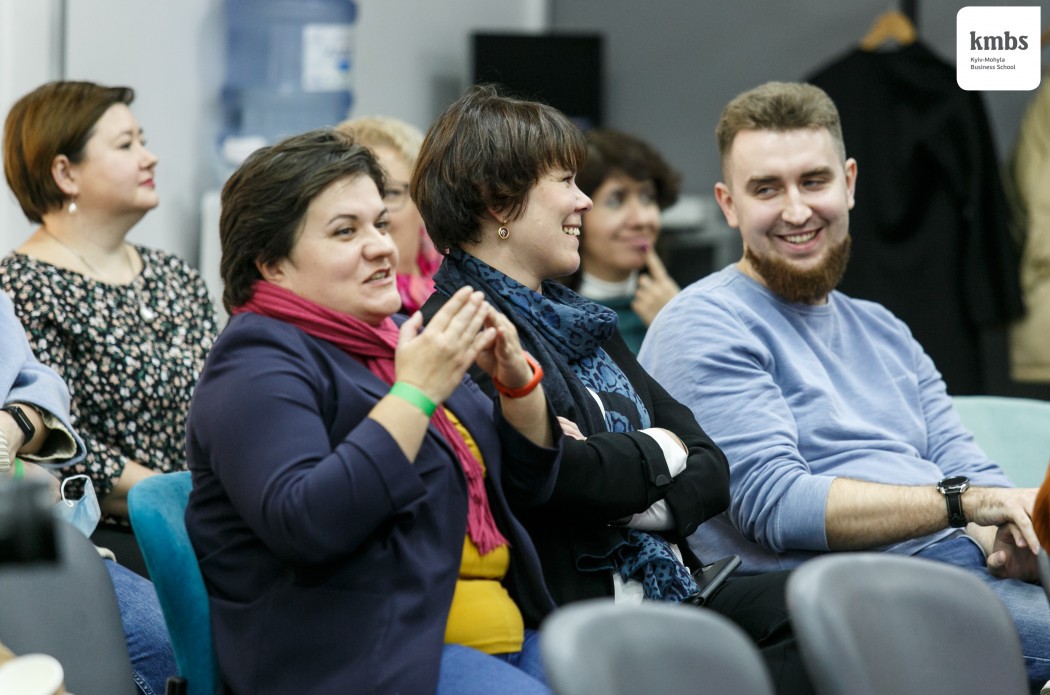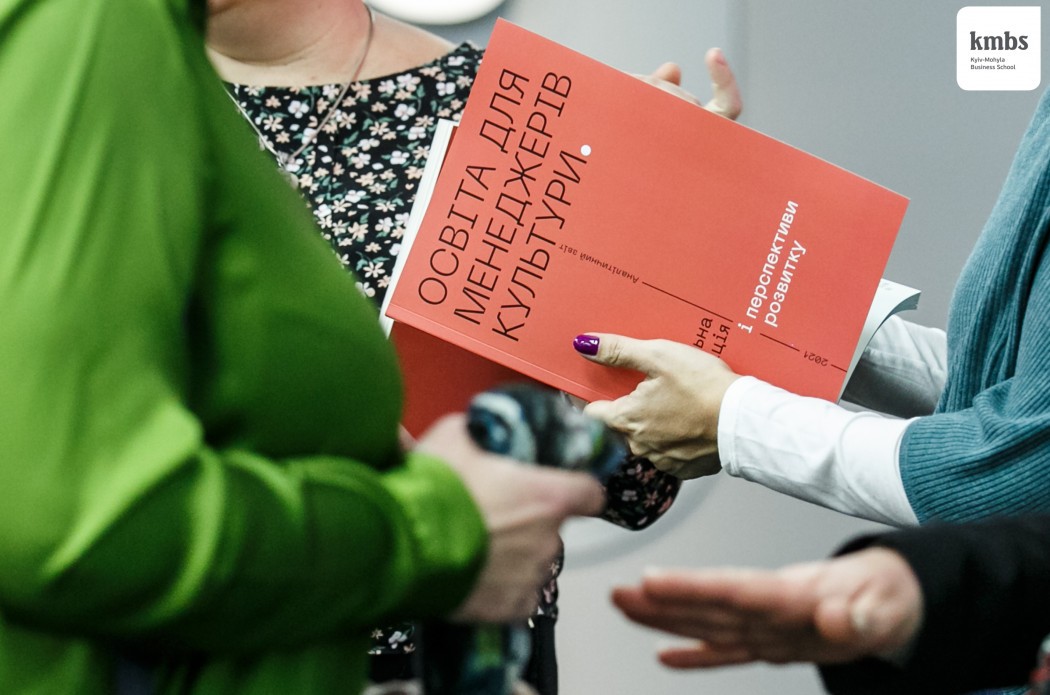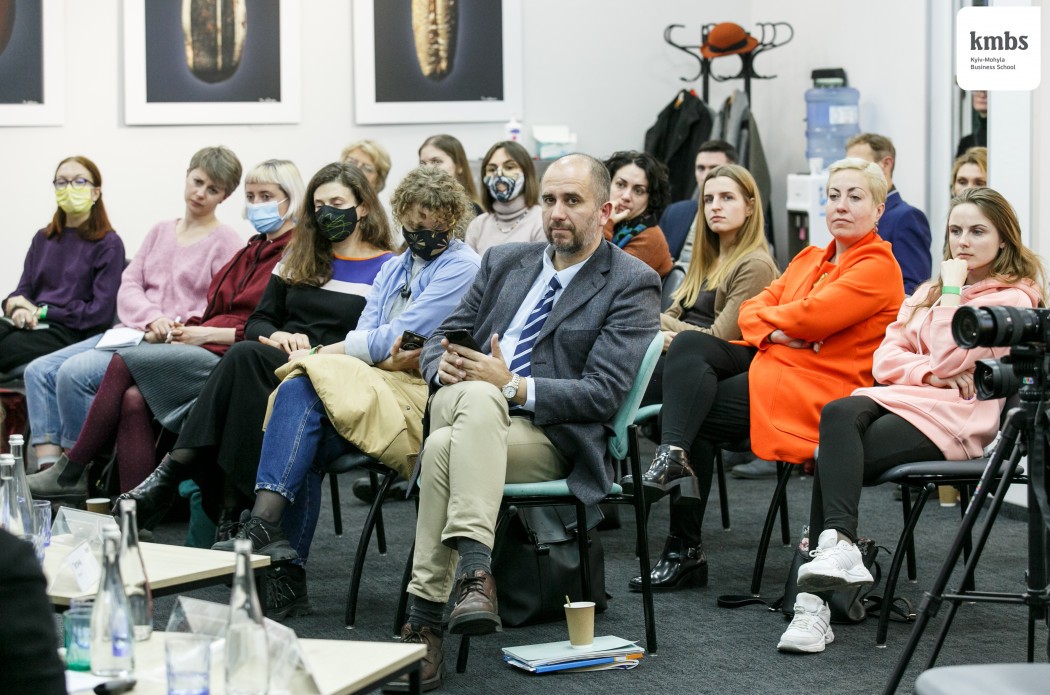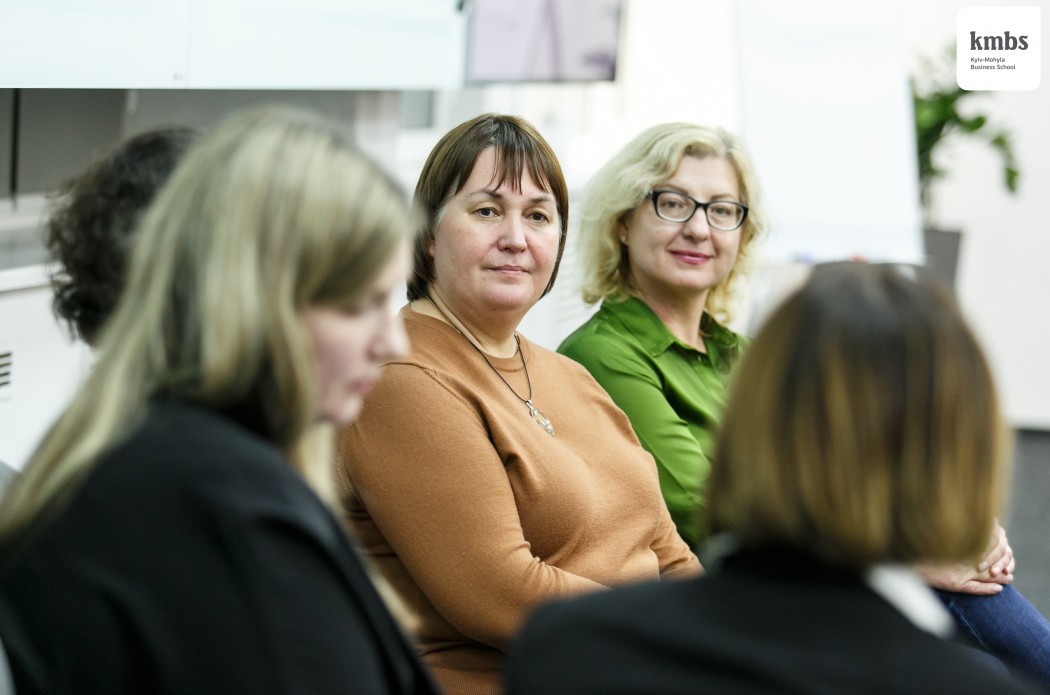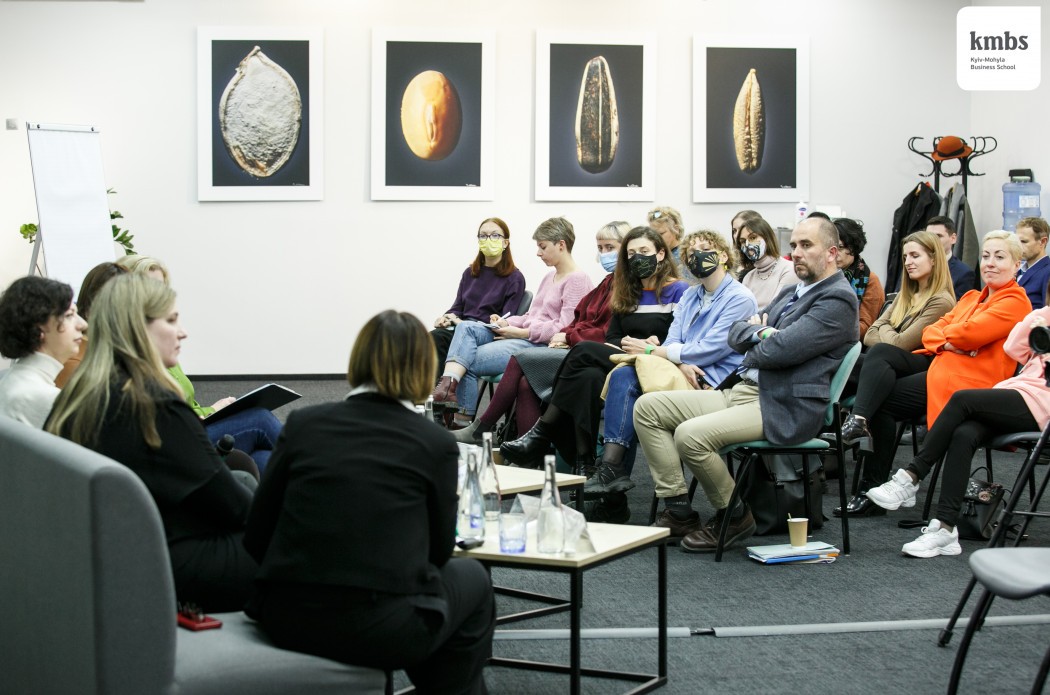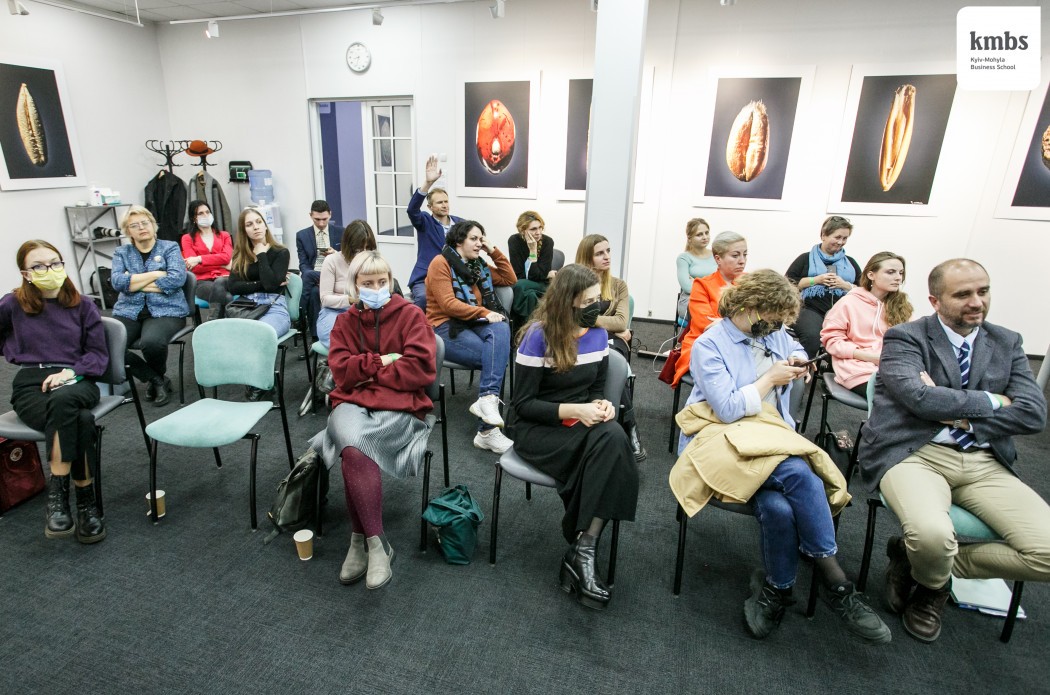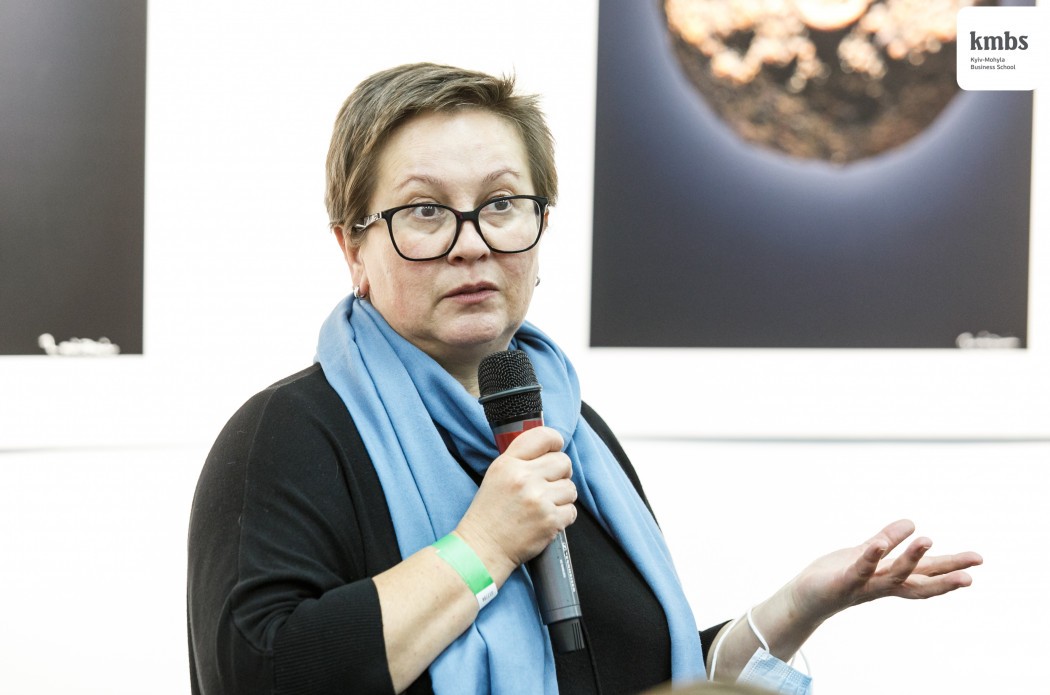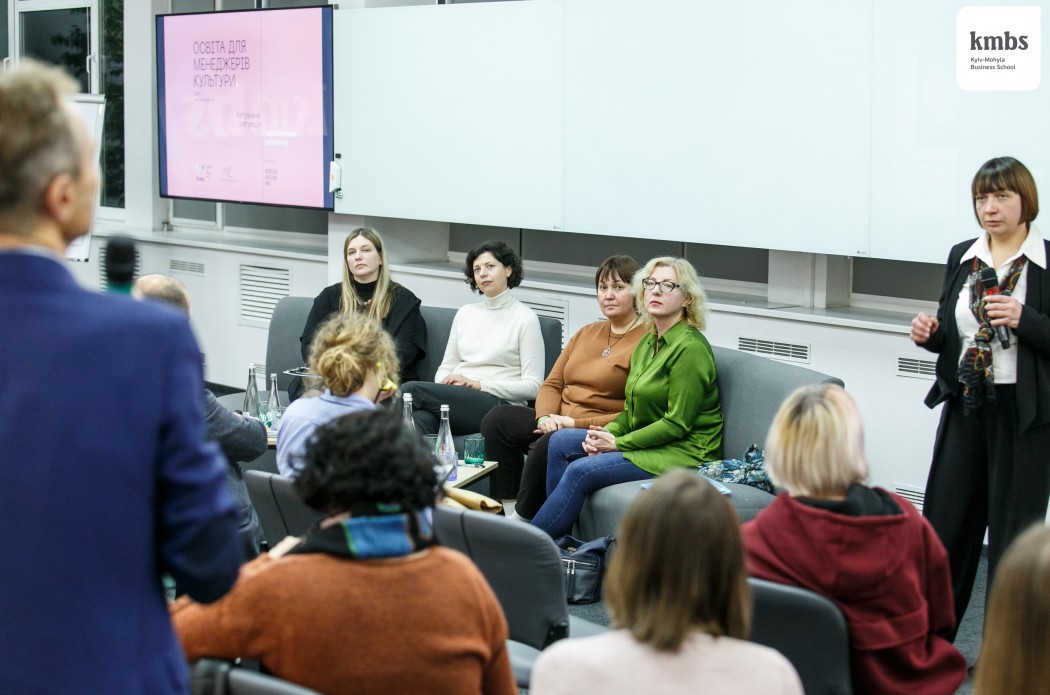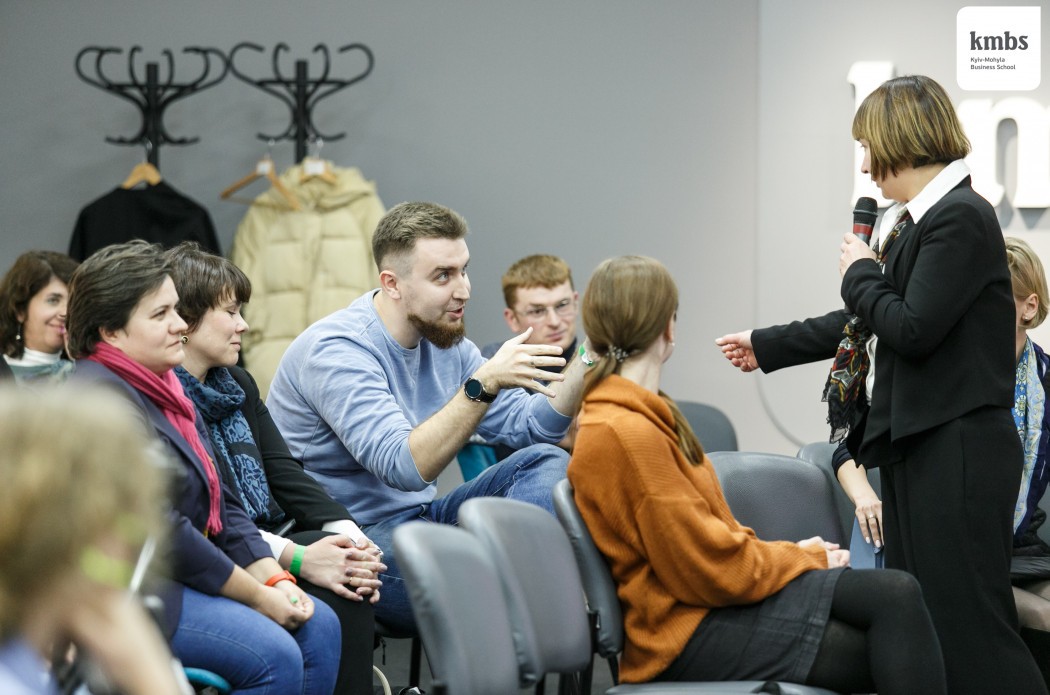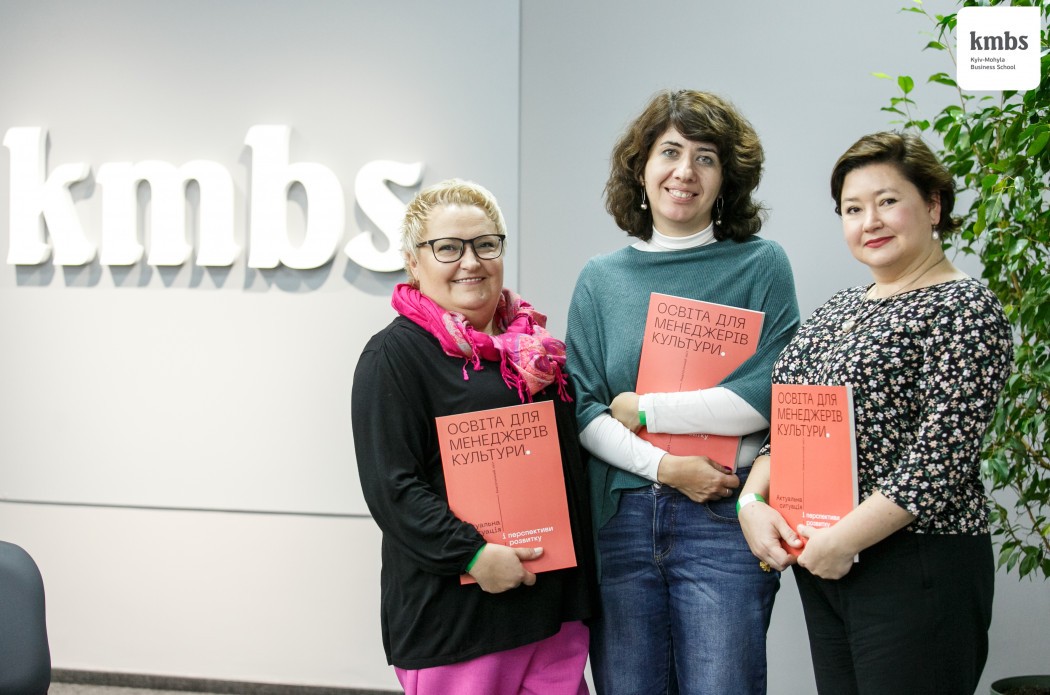An analytical study of the current state of education for cultural managers was initiated by the Dofa fund. Project "Education of cultural managers. Analysis of the current situation and prospects for development" was implemented in partnership with MZ Hub and with the support of UKF.
Olga Sagaidak, co-founder of Dofa fund, a participant in the EMBA kmbs program, presented the results of the study. As they can be the basis for the development of relevant educational programs for the training of cultural managers (and will meet the demands of the labor market), representatives of institutions that are or may be beneficiaries of this type of analytics were invited to talk.
Olesya Ostrovska-Lyuta, General Director of the National Cultural, Art and Museum Complex "Art Arsenal"; Tetyana Kolos, Head of the Department of Art and Art Education of the ICIP; Olga Rossoshanska, First Deputy Head of the State Agency of Ukraine for Arts and Art Education; Alla Rybalko, head of the expert group of the Ministry of Education and Science on higher education and adult education - each of the speakers spoke about the benefits for their work of such external examinations, which are currently critically few.
Olga Sagaidak and her colleagues suggested that the education of cultural managers should work as a business ecosystem. So they highlighted the points that do not correspond to such an attitude and made suggestions as to what exactly needs to change in order for the education of cultural managers to become an ecosystem.
To begin with: there is essentially no specialty "cultural manager" in the university, which means that there are no professional standards, which means that you cannot get a job in this profession. The joke about the cases when the manager, curator, or moderator in the framework of the project is "prescribed" by the illuminator, entertainer, or stage worker in the hall did not cause a smile, because such are the realities of the profession.
Today, the standards are well written for a professional junior bachelor, which sets a good precedent. For the uninitiated, Tetyana Kolos explained: professional junior bachelors are cultural managers who will work in communities and therefore meet the needs of communities, that is, directors of houses of culture, for example. And in this area, there is a huge problem outside the presence / absence of standards: such professionals do not go to work in communities.
Meanwhile, in careful structural advice on the education of cultural managers at all levels - from high school to graduate - the authors of the study do not accidentally insist: gain practical experience, be included in the professional environment, get feedback and thus build competencies and develop skills - the main need and the main requirement for the education of a cultural manager.
The need for managers-managers in culture is obvious, - all speakers emphasized. From this thesis comes the study itself. In part, provocative questions from students (including Iryna Podoliak's questions) undermined the thesis: is there really a need for so many managers with a university degree in the labor market in Ukraine? By and large, the provocation failed, but it revealed the main problem even more: there is something close to a communicative collapse between students, university management and teachers, and employers themselves.
Alla Rybalko reminded that according to the legislation, the professional standards formed by the Ministry of Education and Science should be discussed with potential employers in particular. And for the specialization 028-Manager of socio-cultural activities, external experts were simply not found. Olesya Ostrovska-Lyuta openly countered: in order to join the system of managers' training, to invite students for internships, for example, an institution must have additional resources, obviously - it takes money to pay a person who will take care of "newcomers". But the problem has a broader dimension: employers have nothing to offer new managers, the culture in the labor market - an area extremely unattractive and unprestigious. And this can not but be reflected at every stage of acquiring a profession.
There is one significant point in the study: in the specialties where managers are trained, there is a strong development between the number of budget (ie by state order) places and places for contract training. Here at the master's level: thirty and four hundred and sixty-six, respectively. Tetyana Kolos explained why there is such a significant gap in the specialties of "culturology" and "management of socio-cultural activities": young people with low scores in the specialty according to the results of external evaluation enter the specialty.
What kind of managers does the culture need right now?
Or, the program here was a remark by Olesya Ostrovska-Lyuta, which reflected both her entry into the profession and the actual experience of the employer: Olga Rossoshanska stressed several times: we have a systemic problem, the same state of affairs exists not only in the education of cultural managers, it is not about the problems of a particular specialty, but about the need to change the rules. In the combination of the remarks of the two experts, you can see (occasionally) both a good forecast and a lever for the transformation of the system.




